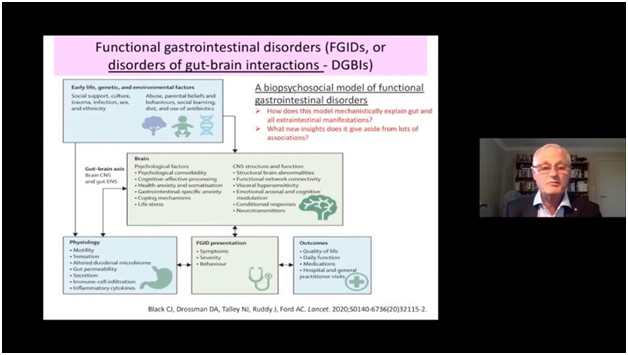- The conclave celebrates innovation and excellence in the pharmaceuticals and life sciences sector, and was launched in 2013 by Cadila Pharmaceuticals as a tribute to its late founder Indravadan A Modi, fondly known as the ‘Medicine Man of India’.
NE HEALTH BUREAU
AHMEDABAD, NOV 25
Functional gastrointestinal disorders are very widespread, and dozens of crores of people in India suffer from these disorders in one or the other form, a leading gastroenterology expert shared.
Leading doctors from India and around the world met virtually in the ninth edition of iamicon 2021, the country’s largest medical knowledge conclave and spoke at length on this vital health issue.
Dr. Govind Makharia, Professor, Department of Gastroenterology and Human Nutrition at the All India Institute of Medical Sciences (AIIMS), said, “Functional gastrointestinal disorders are very common disorders. It is estimated that one-third of our country’s population has some form of these disorders, either in the form of dyspepsia or irritable bowel syndrome amongst others.”
Dr. Makharia made the comment while addressing a session at the Indravadan Ambalal Modi Innovation Conclave (iamicon) 2021, the country’s largest virtual knowledge conclave. The conclave celebrates innovation and excellence in the pharmaceuticals and life sciences sector, and was launched in 2013 by Cadila Pharmaceuticals as a tribute to its late founder Indravadan A Modi, fondly known as the ‘Medicine Man of India’.
He further said the medical fraternity has yet to understand the functional gastrointestinal disorders completely, but added interest in them has gone up in the last decade or so.
Dr. Manish Bhatnagar, Director & HOD of Gastroenterology at ICON Hospital, Ahmedabad, who moderated the session on functional gastrointestinal disorders, said these disorders are asymptomatic and stressed the need for a patient-centric approach.
“The treatment for functional gastrointestinal disorders has to be symptomatology driven. We do not have any investigation that proves or disproves the disorders, and sometimes there is a lack of satisfaction at the patient’s level because we are unable to give them a particular diagnosis based on a particular test. In such cases, doctors need to treat the psyche as well as symptoms. The treatment of these disorders will be more art than science,” he said.
iamicon 2021 brings together the brightest minds from the medical and healthcare fraternity who showcase their pathbreaking innovations in the Indian life sciences space.It is also a platform to award the students excelling in their education and having high potential in the field of medicine. Over 45,000 doctors, from across the globe are taking part in iamicon 2021, where topics related to Dermatology, Orthopaedics, Gynaecology, Cardiology, Diabetology, and critical care, will also be discussed.
In a session on Gynaecology at IAMICON 2021, experts discussed about Polycystic Ovary Syndrome (PCOS). PCOS is identified as the most common endocrinopathy in women, affecting 10-20% of women of reproductive age and 25-30% of women facing infertility. It is a metabolic disorder that has health implications throughout life.
Professor Robert Norman of Robinson Research Institute at the University of Adelaide, said present-day lifestyles have caused the global epidemic of PCOS which parallels the global epidemic of obesity. He also spoke about advances in the understanding and treatment of PCOS.
Dr. Sunita Lamba, Professor and Head of department (Obstetrics and Gynaecology), Mata Chanan Devi Hospital, New Delhi, said, “6 to 18 per cent of adolescent girls have PCOS. It is important to identify adolescents at risk to prevent the development of possible complications. Diagnosis is a challenge due to overlapping symptoms of normal puberty and PCOS.”
Dr. Manoj Pandya, Senior Consultant at Kadam women’s hospital, Ahmedabad, said, “Irregular menstrual cycle and ovulatory discharge are amongst the symptoms of PCOS. Other symptoms include ovaries having large or many cysts, excess body hair, including chest, stomach and back (hirsutism), and weight gain, especially around the abdomen.”












